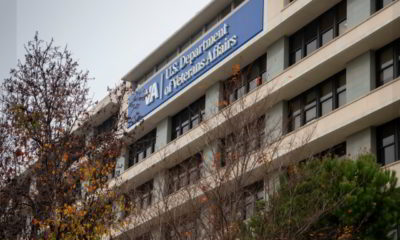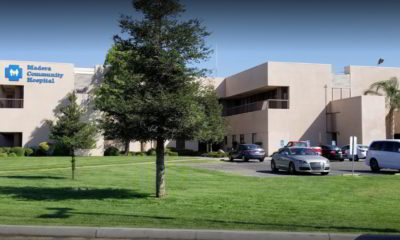Published
5 years agoon

Does the trauma enveloping California this year — pandemic, recession, heat waves, blackouts and disastrous wildfires — make voters more or less likely to vote for tax increases?
Sponsors of a $12 billion a year hike in taxes on warehouses, office buildings, factories and other commercial property hope it’s more.

Dan Walters
Opinion
Proposition 15 would raise that money for schools and local governments by changing Proposition 13, the iconic 1978 ballot measure that imposed tight restrictions on property taxes. If it’s passed, taxable values of commercial property would be increased to current market levels.
Public employee unions and other advocates of government spending have long yearned to crack Proposition 13 via what’s called a “split roll” and after many starts and stops, finally decided that 2020’s presidential election, with a high voter turnout, would be the best time to give it a try.
Even before California and its economy were hammered by COVID-19 and recession, polling indicated that the measure had no better than a 50-50 chance of passage. The iffy climate for new taxes was also signaled in last March’s primary election, just before the pandemic hit home, when more than half of hundreds of local tax and bond measures were shot down.
[rlic_related_post_one]Nevertheless, split-roll advocates forged ahead with what became Proposition 15, setting up what promises to be a titanic political war with commercial property owners and other business groups. Pandemic and recession are likely talking points for both sides.
Some local authorities have pulled back long-planned tax increase proposals, believing that chances of passage even in a high-turnout presidential election have faded.
One of those instances occurred in July, as a deadline for placing measures on the ballot approached. The Sacramento Transportation Authority, which had decided to ask local voters for a half-cent sales tax increase, abruptly reversed course when polling indicated it would likely fail.
“We understand the public sentiment at this time given the pandemic and social unrest, people are focused on other things,” transportation authority board chairman Darren Suen, a member of the Elk Grove City Council, said.
However, it appears that most local government proposals to raise taxes, including bonds that would be repaid from increased property levies, will remain on the ballot.
The California Taxpayers Association counts 237 local tax and bond measures to be decided in November, including 176 direct tax increases totaling roughly $1.5 billion. Voters also will face $13.1 billion in local school construction bonds and $1.9 billion in other local bonds, Cal-Tax says.
Most are traditional increases in sales taxes or parcel taxes on property, but they also include local levies on legal marijuana sales, property transfer documents, utility services and hotel rates.
A semi-new taxation wrinkle is being tried in several San Francisco Bay Area communities — direct taxes on business. San Francisco itself has two business tax measures on the ballot, including a gross receipts tax based on the difference in pay between corporate executives and their employees. Richmond proposes a new tax on telecommunication services and video streaming.
There’s also a new wrinkle in the long-running conflict over spending taxpayer money to persuade voters to endorse new taxes and bonds. Such advocacy is illegal, although almost never prosecuted. But California’s Fair Political Practices Commission recently fined Los Angeles County’s government for waging a million-dollar campaign for a 2017 tax measure under the guise of “information.”
Watchdog organizations will be monitoring local governments this year to see if the FPPC fine has an effect on how local governments spend public funds to present their tax increase pitches to voters.
CalMatters is a public interest journalism venture committed to explaining how California’s state Capitol works and why it matters. For more stories by Dan Walters, go to calmatters.org/commentary.


Tulare County Gang Member, Two Fresnans Head to Federal Prison


Study: First 10 Days After Leaving Hospital Pose Deadly Risks for COVID Patients


California Pins Vaccine Hopes on Biden Administration


Bay Area Restaurants, Wineries File Lawsuit Over Outdoor Dining Ban


Madera Hospital, With ICU Inundated, Transfers Patients to Other Facilities


‘Shameful’: US Virus Deaths Top 400k as Trump Leaves Office




